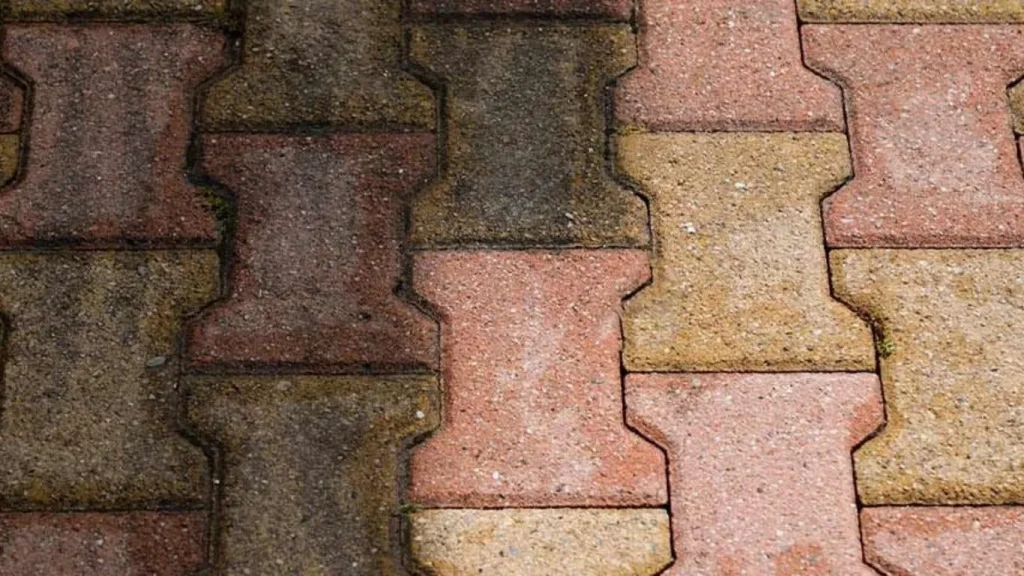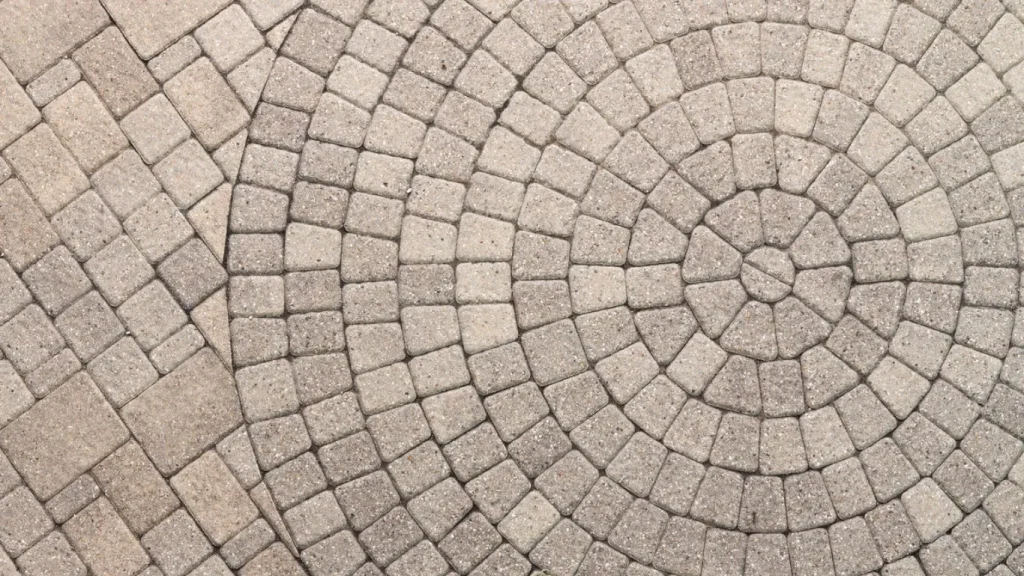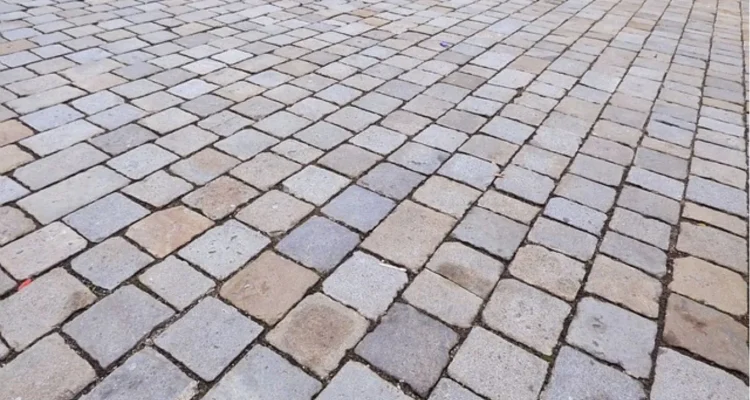How to Remove Stains from Pavers
Pavers add beauty and functionality to outdoor spaces, but keeping them looking fresh can be a challenge, especially when stains appear. Whether from oil, rust, organic debris, or even paint, knowing how to remove stains from pavers is essential for maintaining your outdoor area. This guide will walk you through practical solutions for keeping your pavers clean and stain-free.

Understanding Your Paver Material
The first step in removing stains is understanding the type of pavers you’re dealing with. Different materials require different cleaning methods.
Brick Pavers
Brick pavers are porous and absorb stains easily. While durable, they are sensitive to certain chemicals.
Concrete Pavers
Concrete is one of the most common materials, but its porous nature can make stain removal tricky if not handled properly.
Natural Stone Pavers
Natural stone is beautiful but often more delicate than other paver materials. Care should be taken when applying cleaning solutions to avoid damage.
Essential Tools and Materials for Stain Removal
Before jumping into the cleaning process, it’s important to gather the right tools:
- Scrubbing Brushes: Soft-bristle brushes for delicate materials, and stiff-bristle brushes for more durable pavers.
- Cleaning Solutions: Homemade mixtures like vinegar and water or commercial cleaners made for pavers.
- Power Washer: Helpful for deep cleaning, but must be used with care to avoid damaging pavers.
Types of Stains and How to Remove Them
Different stains require different cleaning methods. Here’s a breakdown of common paver stains and how to remove them:
Oil Stains
Oil stains are common from cars or cooking grills. The oil penetrates the surface of the pavers, so it’s important to act fast.
Step-by-Step Oil Stain Removal:
- Blot the oil with a paper towel or cloth—avoid rubbing it in.
- Apply a mixture of dish soap and warm water to the stain.
- Scrub the area with a stiff brush.
- Rinse thoroughly with water and repeat if necessary.
Rust Stains
Rust can develop on pavers from metal furniture, tools, or fixtures.
How to Remove Rust:
- Apply a mixture of lemon juice and baking soda directly to the rust stain.
- Let it sit for 5-10 minutes.
- Scrub with a brush, and rinse with water.
Organic Stains (Leaves, Algae, Mold)
Organic stains from leaves, mold, or algae are quite common, especially in damp environments.
Natural Solutions:
- For light stains, a mixture of vinegar and water works wonders.
- Scrub the area and let it dry in sunlight to kill off remaining mold or algae spores.
Paint Stains
Paint spills on pavers can be daunting, but they aren’t impossible to remove.
Steps to Remove Paint:
- Scrape off excess paint using a plastic scraper.
- Apply paint thinner or a commercial paint remover and let it sit for a few minutes.
- Scrub the area with a brush and rinse with water.
Pre-Treatment Tips
Before diving into stain removal, take these important steps:
- Inspect the Stain: Determine the type of stain and material to avoid using the wrong cleaning method.
- Test Cleaning Agents: Always test on a small, hidden area first to ensure it doesn’t damage the paver.
- Prepare the Area: Remove debris and dirt to make the stain removal more effective.
Step-by-Step Guide to Removing Stains
For general cleaning:
- Sweep the area to remove dirt.
- Apply your chosen cleaning solution.
- Scrub gently but firmly with a brush.
- Rinse with clean water.
Follow specific guidelines for tougher stains like oil, rust, and paint.
Homemade Cleaning Solutions
If you prefer a DIY approach, try these homemade solutions:
- Vinegar and Baking Soda: Mix vinegar with baking soda to create a paste. Apply to tough stains and scrub.
- Lemon Juice: Acidic and effective, lemon juice can be applied to stubborn rust and organic stains.
Professional Cleaning Solutions
For more stubborn stains, commercial cleaners may be required. Look for eco-friendly options if possible.
How to Use a Pressure Washer Safely
Pressure washing is highly effective but needs to be done cautiously to avoid paver damage:
- Use a wide-angle spray tip to distribute the pressure.
- Avoid getting too close to the pavers to prevent etching the surface.
Sealing Your Pavers for Long-Term Protection
Sealing your pavers helps protect them from future stains. A quality sealant can repel water, oil, and other substances, making stain removal easier in the future.
When to Call in a Professional
If your stains are particularly deep or you’ve tried multiple methods with no success, it may be time to call in a professional. They have specialized tools and chemicals to safely clean your pavers.
Preventing Future Stains
Prevention is key to keeping your pavers looking fresh. Here are some quick tips:
- Regularly clean pavers to prevent the build-up of grime.
- Use protective mats or covers in areas prone to oil or rust stains.
FAQs
Can I Use Bleach on Pavers?
Yes, but be cautious—bleach can discolor some pavers. Always test a small area first.
How Often Should I Clean My Pavers?
Ideally, you should clean your pavers every few months to prevent deep-set stains.
Will Pressure Washing Damage My Pavers?
If done improperly, yes. Use a wide spray tip and avoid direct high-pressure contact with the paver surface.
Are There Eco-Friendly Ways to Remove Stains?
Yes, homemade solutions like vinegar and baking soda are great eco-friendly options.
What’s the Best Way to Keep Pavers Looking New?
Regular cleaning and applying a sealant every 1-2 years will help keep your pavers looking new.

Conclusion
Maintaining the look of your pavers doesn’t have to be a headache. By following the right steps, using proper tools, and keeping up with regular maintenance, you can easily remove stains and keep your outdoor space looking pristine.


Congratulation!